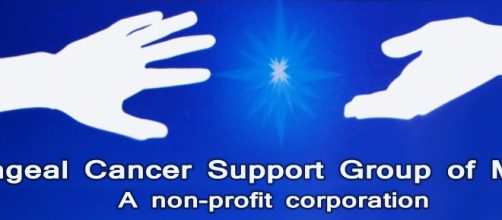Esophageal cancer is rare in the United States making up just 1% of all cancers diagnosed. Esophageal cancer strikes more men than it does women. Adenocarcinoma is aggressive and is treated as such with steroids, combined radiation and chemotherapy and then radical surgery where the entire esophagus is removed, and the stomach is used to create a new esophagus and stomach.
Screening
Esophageal cancer used to be found when symptoms became intolerable. An endoscopy would be the next line of confirmation then generally a PET scan and surgery. Nowadays, having an endoscopy done is almost as routine as a colonoscopy especially after the discovery of Barrett's esophagus, which is a precancerous condition caused by Acid Reflux.
Today, esophageal cancer is found sooner rather than later, giving the person a much better outcome at five years than in the past.
Radiation, chemotherapy and then with the introduction of minimally invasive surgical techniques many people with stage 1 and 2 esophageal cancer go on to survive more than five years. Much of the information on the Internet is out of date and does not include statistics using minimally invasive surgery. If you are researching targets and statistics be sure to check the date of the article you are reading so as not to bring undue hardship and fear upon yourself or a loved one.
Symptoms
As the tumor grows, it often blocks or semi-blocks the esophagus making swallowing difficult.
Blockage of the esophagus is a common problem and can produce intense pain that will stop the sufferer in their tracks. The pain continues until the food manages to escape between the tumor and the esophagus and into the stomach. The pain is severe and is often mistaken for a heart attack or even severe acid reflux. It is quite possible to choke to death as well. Other tests include ultrasound, CT and/or a PET scan. In some cases, the initial diagnosis might be a hiatal hernia. It is important to seek out a referral to a gastroenterologist for endoscopy to confirm a hernia. Had my love one not insisted upon an endoscopy the cancer might not have been found early enough to increase her chances for survival.
It is common to lose weight with esophageal cancer because without even noticing, some people will cut back on their eating because of the pain or they will switch to a more liquid diet made up of soups, broths, and smoothies believing their issue is reflux related. If the cancer is advanced enough, the cancer itself will increase metabolism causing the sufferer to lose even more weight. Other symptoms include hoarseness, vomiting, hiccups, chronic cough, pneumonia and bone pain.
If these symptoms sound familiar ask your primary for a referral for an endoscopy. Survival rates skyrocket if esophageal cancer is diagnosed sooner rather than later.


